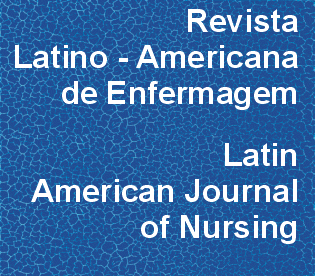Determinantes sociais da saúde, iniquidades e inclusão social entre pessoas com deficiência 1
DOI:
https://doi.org/10.1590/0104-1169.0187.2559Resumo
OBJETIVO: analisar a inclusão sociofamiliar e comunitária e a participação social de pessoas com deficiência, bem como sua inserção em ocupações na vida cotidiana. MÉTODO: estudo qualitativo, com coleta de dados por meio de entrevistas abertas sobre história de vida e observação sistemática. A amostra foi composta por dez pessoas com deficiência, adquirida ou congênita, moradoras de região adstrita a um Núcleo de Saúde da Família. O referencial teórico foi a concepção social da deficiência. Os dados foram analisados segundo abordagem interpretativa reconstrutiva, fundamentada no referencial da Teoria da Ação Comunicativa de Habermas. RESULTADOS: os resultados evidenciaram que a inclusão sociofamiliar e comunitária dos sujeitos do estudo condiciona-se a determinantes sociais da saúde, apresentando índices de iniquidades sociais, expressos pela dificuldade de acesso a serviços de Atenção Primária à Saúde e de reabilitação, trabalho e renda, educação, cultura, transporte e participação social. CONCLUSÃO: conclui-se a necessidade da elaboração de programas de atenção centrados na comunidade, voltados ao enfrentamento da pobreza e à inclusão social, em articulação com serviços de Atenção Primaria à Saúde.Downloads
Os dados de download ainda não estão disponíveis.
Downloads
Publicado
2015-04-01
Edição
Seção
Artigos Originais
Licença
Os direitos autorais são de propriedade exclusiva da revista, transferidos por meio da Declaração de Transferência de Direitos Autorais (presente no Formulário Individual de Declarações) assinada pelos autores. Para a utilização dos artigos, a RLAE adota a Licença Creative Commons, CC BY-NC Atribuição não comercial (resumo ou código completo da licença). Com essa licença é permitido acessar, baixar (download), copiar, imprimir, compartilhar, reutilizar e distribuir os artigos, desde que para uso não comercial e com a citação da fonte, conferindo os devidos créditos autorais a Revista Latino-Americana de Enfermagem. Nesses casos, nenhuma permissão é necessária por parte dos autores ou dos editores.Como Citar
Determinantes sociais da saúde, iniquidades e inclusão social entre pessoas com deficiência 1 . (2015). Revista Latino-Americana De Enfermagem, 23(2), 329-336. https://doi.org/10.1590/0104-1169.0187.2559



